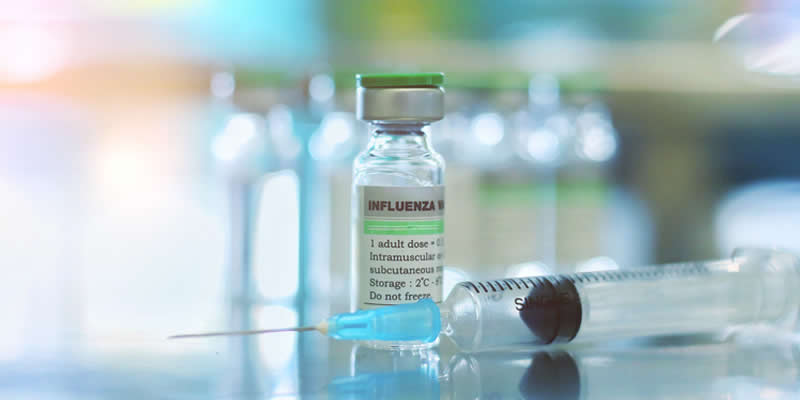People with diabetes in the UK are advised to receive free flu jabs on the NHS because of the increased risks of short term diabetes complications and an increased risk of pneumonia.
The flu vaccination involves administering a non-active version of the flu virus into the body which stimulates immunity against the real flu virus.
- Read more on managing your diabetes if you catch the flu
Benefits of receiving the flu vaccination
There are a number of key benefits of being vaccinated against the flu:
- Protect yourself from symptoms and complications of the flu, which can be severe
- Reduce the risk of short term diabetes complications which are more likely to occur if you have the flu
- By protecting yourself against the flu, you will also prevent those around you from catching the flu from you
Flu jab side effects
The most common side effects of the flu shot are as follows:
- Mildly high temperature
- Aching muscles
- A sore arm where the injection is put in
These side effects do not occur in everyone and the side effects are much less severe than the effects of the flu. More serious side effects are rare.
When to get the flu jab
The flu vaccine is available from October through to early November and therefore it is best to get vaccinated during this period.
If you need to be vaccinated outside of this period, your health team will try to make this possible.
When is the flu vaccination not recommended?
The flu vaccine is not recommended if you have previously experienced an allergic reaction to the flu vaccine.
If you have a high temperature or fever when the vaccination is due, your flu jab should be postponed until after your illness has passed Note that colds and minor illnesses, however, should not affect whether you have the flu jab.
If you have an egg allergy, you should receive either an egg free or low egg content flu vaccine.
Flu jab in 2024
There are a number of different strains of flu which the seasonal flu vaccine aims to prevent. Each year, the World Health Organisation identifies the strains which are most likely to cause










